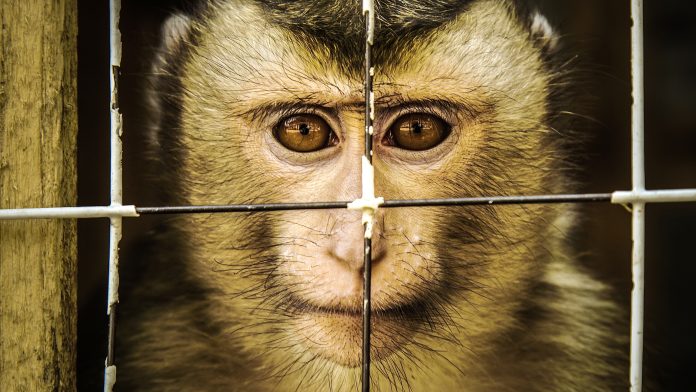
Primates Continue To Suffer While Research Labs Plan To Gain $30 Million In Taxpayer Dollars To Renovate & Expand
By WAN
You can help all animals and our planet by choosing compassion on your plate and in your glass. #GoVeg
RELATED ARTICLES
Amazon Faces Growing Backlash Over Selling Cruel Donkey-Hide Gelatin Products
Animal welfare advocates representing millions of people around the world gathered at Amazon HQ2 to hand-deliver over 370,000 petition signatures demanding that Amazon ban...
Man Charged With A Felony For Leaving His Dog Tied To A Fence During Hurricane Milton
A 23-year-old man has been charged with aggravated animal cruelty, a third-degree felony, after footage of his abandoned dog went viral just before Hurricane...
Colorado Officials Call Off Search For Wolf Pup Left Behind After Copper Creek Pack Was Captured
A picture of the suspected fifth wolf pup of the Copper Creek pack. Photo by: Colorado Parks and Wildlife
Conservationists and wildlife advocates are outraged...
Popular stories
Featured
Breaking! Compassionate City In New Zealand Closes Busy Road To Protect An Endangered Nesting Sea Lion & Her Pup
A city in South Island, New Zealand, is closing a busy road for a month to allow an endangered sea lion to nest safely with her...
Industry News
China’s Ministry of Agriculture States That Dogs Are Pets and Not Livestock, Giving Hope To An End To The Dog Meat Trade
China’s Ministry of Agriculture and Rural Affairs has for the first time ever explicitly stated that dogs are companion animals and not “livestock,” in...
News
Outdated Offshore Drilling Plans Linked To California Oil Spill That Killed Wildlife Will Be Reviewed By U.S. Government
The Bureau of Ocean Energy Management (BOEM) agreed this week to review outdated plans for offshore oil platforms near Huntington Beach in Southern California....


